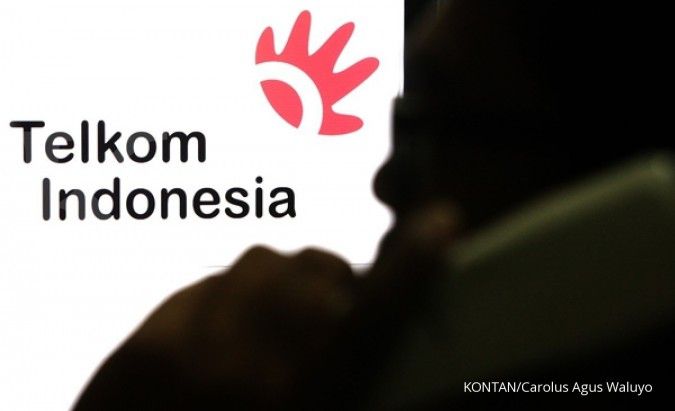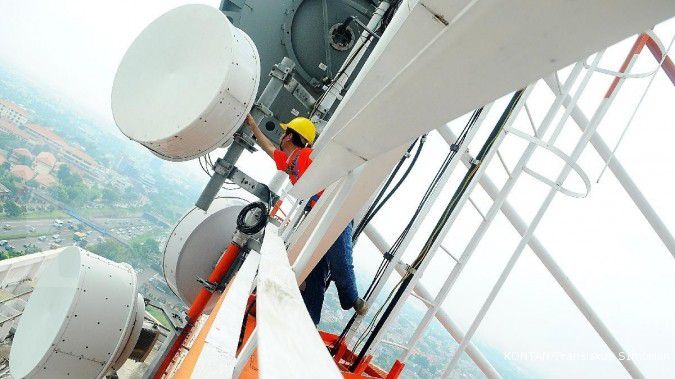JAKARTA. Ericsson, the Swedish communication technology and services provider, expects its business in Indonesia will grow as the country is working on a US$22 billion-broadband project over the next four to five years.
Ericsson president and CEO Hans Vestberg said during his recent visit to Jakarta that the company would take advantage of the country’s move to provide a broadband network for its 250 million population.
Under its five-year broadband plan, Indonesia aims to see fixed broadband and mobile broadband penetrate 30 and 100 percent of the urban population, respectively, by 2019.
The project also targets to deliver fixed and mobile broadband to 6 and 52 percent of the rural population, respectively.
“We believe that the Indonesian market is going forward, with 4G just coming. So, with our offering in mobile infrastructure, IT system, media and services, we are certain we are in a very good position,” Vestberg said.
Ericsson, which provides various telecommunication and technology services, has been present in the country for over 100 years with major clients, such as cell operators PT Telekomunikasi Selular (Telkomsel), PT XL Axiata and PT Indosat.
The capital expenditure (capex) of the three operators will hit around $4 billion this year, Communications and Information Minister Rudiantara has estimated.
“Indonesia is one of our strongest markets and it was among our top-10 markets globally last year. For sure, it will continue to be like that,” said Magnus Mandersson, Ericsson’s vice president and head of business unit global services.
Vestberg added that to meet demand from the dynamic technology market and to maintain its position in the global market, his firm would keep allocating $5 billion or around 18 percent of its annual revenues to research and development each year.
“We will not compromise on research and development, because the industry is moving very fast […] and that’s the only way to stay competitive,” he said.
There had been around 15 competitors in mobile infrastructure in the last 15 years, but there were only two left, he went on.
Other than Ericsson, market players in the telecommunication vendor business in Indonesia include Nokia Networks and Huawei.
Ericsson saw a slight increase in its net sales to 228 billion Swedish Krona ($26.5 billion) last year from 227.4 billion Swedish krona in 2013.
The firm’s revenue in North America, which is the firm’s largest revenue contributor, slumped by 9 percent due to the efficiency of most operators in the region as they had spent a lot of money on spectrum.
“From capex’s point of view, the US probably made up between 25 and 30 percent of the world’s total spending for telecommunication infrastructure. So, when it came down, we were sure to be affected,” said Vestberg.
He added that his firm’s targeted areas, including IP networks, cloud, operations support system and business support systems, had helped to compensate for the slowdown in the North America region as they had recorded around 10 percent growth. (Khoirul Amin)
Ericsson aims to benefit govt’s broadband project
March 30, 2015, 11.36 AM
/2011/09/14/135667598p.jpg)
ILUSTRASI. Karyawan money changer menghitung mata uang dollar US di salah satu money changer Jakarta, Rabu (5/5). /pho KONTAN/Carolus Agus Waluyo/05/05/2021.
Source: The Jakarta Post
| Editor: Hendra Gunawan
English
Latest News
-
February 09, 2026, 05.55 PM
Indonesia to Hold Follow-up Meeting with MSCI This Week after Market Rout
-
February 09, 2026, 08.05 AM
GLOBAL MARKETS-Asia Rallies as Japan Shares Surge to Record Peak
-
February 08, 2026, 02.30 PM
South Korean Crypto Firm Accidentally Sends US$44 Billion in Bitcoins to Users
-
February 07, 2026, 05.13 PM
Indonesia-Australia Relations: Booming Business, Golden Opportunities for Investors
-
February 07, 2026, 04.59 PM
Indonesian Comedian Summoned by Police Over Netflix Show
-
February 07, 2026, 05.57 AM
GLOBAL MARKETS-Stocks, Bitcoin Rally, Regaining Some Lost Ground with Precious Metals
-
February 06, 2026, 07.58 AM
Indonesian Markets Face More Pressure after Moody's Cuts Outlook
-
February 05, 2026, 07.19 PM
Moody's Cuts Indonesia's Sovereign Rating Outlook to Negative
-
February 05, 2026, 02.43 PM
Indonesia Posts Fastest Economic Growth Rate in Three Years











